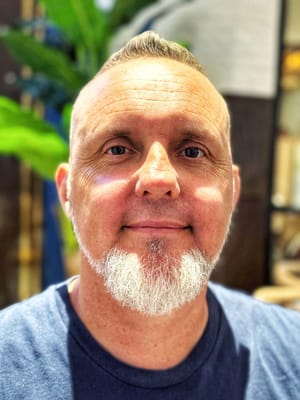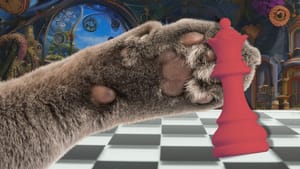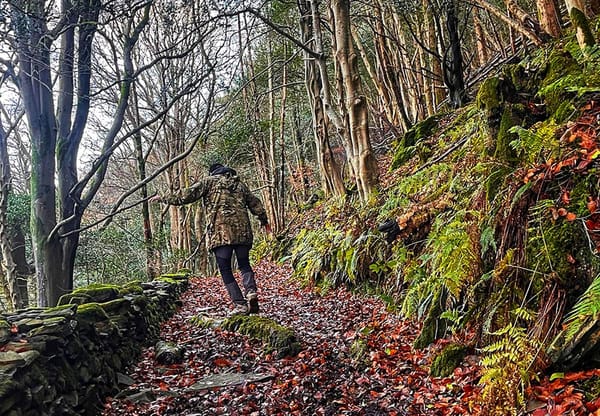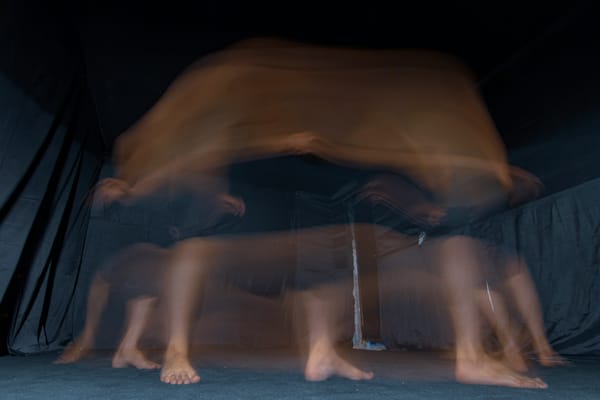When I first began the practices of unoptimisation in my life, I expected resistance. Of course, there was resistance, but I didn't expect the craving that followed.
It begins like withdrawal. The first time you sit without your phone, without a timer, without a goal, your body rebels. The nervous system, so accustomed to its diet of metrics and pings, thrashes like a fish on land. Your mind generates urgent pseudo-tasks: check the time, measure your breathing, calculate how long you've been sitting, wonder if you're doing it right.
But then something shifts…
When the Body Remembers
Sahlins wrote that hunter-gatherers worked only 3-5 hours a day, not because they couldn't work more, but because they didn't need to. They lived in what he called ‘the original affluent society.’ Affluent not through material abundance but through the absence of want. They trusted the forest to provide, the seasons to return, their bodies to know.
I believe we have forgotten this trust. It returns, slowly at first, when we stop optimising every aspect of our lives.
The craving begins subtly. You find yourself looking forward to that unscheduled morning coffee simply to feel the warmth between your palms, not to ‘caffeinate efficiently’ with Yak butter you imported from the Tibetan Plateau. You start taking the long way home, not for the steps but for the particular quality of light through the trees at dusk. Your body begins to request these moments, not as breaks from productivity but as returns to something essential. Essential here isn't what capitalism calls necessary, it’s what your soul recognises as home: presence without purpose, being without becoming, the simple human animal pleasure of existing.
The Violence of Positivity Meets Its Match
Byung-Chul Han warns us that we've become ‘achievement-subjects,’ our own prison guards in the panopticon of self-improvement. We have internalised the machine's code so deeply that we mistake its commands for our desires. The fitness tracker becomes our heartbeat's judge. The meditation app colonises our breath.
But here's what I've discovered: the body keeps a different ledger.
When you give yourself permission to be unoptimised—truly permission, not just another task disguised as rest—your body remembers rhythms that predate capitalism and the industrialisation of the soul. It remembers how to be tired without shame, how to be slow without guilt, and how to simply exist without producing value.
And then the craving sets in. Not addiction, that’s the machine's way. This is recognition. Like tasting your grandmother's cooking after years of processed food, suddenly you remember: this is what nourishment feels like.
The Technology of Forgetting and Remembering
We live in what Bernard Steigler calls a ‘new barbarity’, not the absence of culture but the industrialisation of memory. Our devices remember, so we don't have to. Our apps track, so we don't have to feel. We've outsourced sensation itself to the cloud.
But the body holds a different kind of memory. Merleau-Ponty called it ‘motor intentionality,’ the way our flesh remembers how to ride a bike, how to swim, how to embrace. This embodied memory can't be optimised because it exists outside the logic of improvement. It simply is.
When we practice unoptimisation, we're not learning something new. We're remembering something ancient. The body remembers how to breathe without counting. The mind remembers how to wander without mapping. The soul remembers how to be without performing.
Here's the beautiful paradox: it takes tremendous effort to remember how to be effortless. In a culture that has weaponised every moment into an opportunity for self-improvement, doing nothing becomes a radical act. Being inefficient becomes resistance.
At first, you have to schedule your unscheduling. You have to plan your purposelessness. You have to work at not working. This feels like failure, like you're doing unoptimisation wrong. (Notice how even here, the optimisation mindset creeps in, the need to do even nothing correctly.)
But slowly, the effort transforms. What began as discipline becomes desire. What started as resistance becomes remembering.
The Craving That Heals
The craving for unoptimised experience is not nostalgia; it’s not about returning to some imagined past. It's about reclaiming a way of being that exists outside linear time altogether. It’s the recognition that some things cannot be measured, contained, or improved.
When you crave that slow morning, that meandering walk, that purposeless afternoon, you're not being lazy. You're being human. Your body is asserting its right to exist outside the machine's logic. Your soul is remembering its native language.
This craving is holy. It's the part of you that refuses to be reduced to data points. It's the wilderness within that remembers what it means to be free.
So, how do we cultivate this craving for natural wisdom? How do we strengthen this memory?
Start small. Give yourself five minutes of unwitnessed, unmeasured being. Don't meditate with an app, a timer, or a technique. Just sit. Let your attention drift like smoke. Notice without noting. Feel without recording. What the Zen tradition calls shikantaza, just sitting.
Pay attention to the resistance. Notice how your mind generates tasks, how your body creates urgencies. Smile at these like old friends, they’re just the machine's programming asserting itself. Let them pass.
Then notice what comes after. The settling. The softening. The strange feeling of being enough, right now, without achieving anything. This is your original affluence returning.
Practice this regularly but not religiously. (Religion has been optimized too.) Let it be irregular, imperfect, human. Some days you'll forget. Good. Forgetting is part of remembering how to be human.
The Return
Gradually, you'll find yourself craving these moments not as escape but as return. Return to a rhythm that doesn't serve capital. Return to a presence that doesn't perform. Return to what David Abram calls ‘the spell of the sensuous,’ the animate earth speaking through your animate body.
This is not regression. This is not anti-technology. This is remembering that we are not machines and were never meant to live by their code. We are creatures of rhythm and rest, of seasons and cycles, of expansion and contraction.
The ecstasy of remembering your original state is not the bliss of achievement. It's the quiet joy of coming home to yourself. It's the relief of setting down the burden of constant becoming and simply being.
In a world that profits from our forgetting, remembering becomes revolution. In a culture that feeds on our insufficiency, being enough becomes rebellion.
So practice your unoptimisation. Trust the craving when it comes. Let your body remember what your mind has been trained to forget: You are not a project to be optimised. You are a mystery to be lived. And that mystery is magnificent, messy, and absolutely enough.
As Marshall Sahlins reminds us,
“The primitive is the one who knows how to keep his desires within the limits of the possible."
The unoptimised is the one who remembers those limits were never prisons, they were freedom.










Member discussion